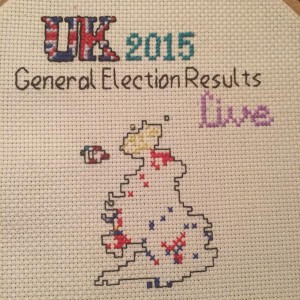May 9, 2015
Briefly
Nate SilverBen Lauderdale carefully examines how his predictions (and everyone else’s) were so staggeringly wrong in the UK election. More people should do this sort of thing.
- The Guardian had really good graphics
- So, in a different way, did Tom Katsumi

- There’s a US court case on whether FDA restrictions on ‘off-label’ drug advertising (ie, advertising a drug for uses it hasn’t been approved for) violates the 1st Amendment. There’s a definite chance the FDA will lose, which would strengthen the incentives to find new uses for drugs, but weaken the incentives to collect good evidence that the drug is actually effective for these uses.
- Just over half of Tindr users are single, but that’s ok because the company “never intended it to be a dating platform.” Maybe people are just using it for the articles.
- How lucky do you have to be for it to be evidence of insider trading? Especially when you consider what some traders will call a “once in 3 billion years” event. What isn’t mentioned here but is important is the idea of likelihood ratios: we’re not just looking at whether an event is unlikely, but whether it becomes much more likely under the alternative hypothesis that you’ve got an inside source.
- Player characters in role-playing games accept unreasonable risks:
Someone, we’ll call that person the Game Master, wants you to accept a single D8 die roll, with death no resurrection on a 1. But as a sweetener, if you roll 2-8 you’ll get…something nice! What would the something nice have to be for you to agree to make that roll?
- Another interesting interactive graphic of trends in US baby names.
- You know that recent Facebook research saying it’s your fault your news feed is biased? Only 4% of US Facebook users provided enough political affiliation information to be included, and you have to read not just the research paper but the ‘Supplementary Materials’ to find this out (or read Eszter Hargittai). And, not surprisingly, the research doesn’t say the algorithms don’t increase bias: what else would a good filter algorithm be doing other than filtering for what it thinks you will like?
Thomas Lumley (@tslumley) is Professor of Biostatistics at the University of Auckland. His research interests include semiparametric models, survey sampling, statistical computing, foundations of statistics, and whatever methodological problems his medical collaborators come up with. He also blogs at Biased and Inefficient See all posts by Thomas Lumley »
That’d be Ben Lauderdale examining how his predictions were so wrong, not Nate Silver.
10 years ago
Maybe I can claim synecdoche? Or something?
Yeah, nah.
10 years ago